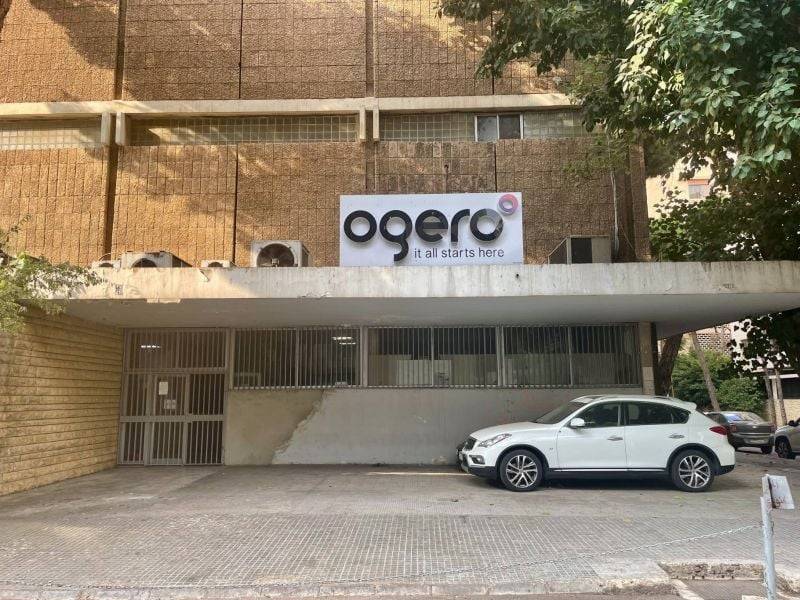
An Ogero center in the Badaro district of Beirut. (Credit: P.H.B./L'Orient Today)
BEIRUT — The Telecoms Ministry is in talks with the cabinet and Energy Ministry so that "one percent" of the Iraqi fuel granted to Électricité du Liban (EDL) via a barter deal can be reserved for state telecoms provider Ogero, caretaker minister Johnny Corm told L'Orient-Le Jour on Wednesday.
Since 2021, Lebanon has been in a barter agreement with Iraq to receive fuel and ensure a supply of power for EDL.
The one percent of Iraqi fuel proposed by Corm "could meet Ogero's needs all year round," added the minister, without clarifying a timeline. His comments come a day before a planned cabinet meeting to discuss budget requirements.
Recent months have seen numerous Ogero outages, cutting off phone and internet service amid a lack of power supply.
Under the agreement, Iraq provides two tons of crude fuel oil per year to Lebanon, which is struggling to meet its fuel needs as a result of the economic crisis. Lebanon exchanges this fuel oil for refined fuel that can run EDL's ailing power plants.
The agreement with Baghdad was renewed this summer for the first time since its adoption in July 2021.
Cabinet ministers are expected to meet on Thursday to discuss the preliminary draft 2024 budget, as well as other issues, including the one percent of Iraqi fuel supply requested by Corm.
"The impasse caused by the lack of fuel oil in some stations, which is putting them out of service, will soon be resolved if the requested credit is adopted by the government tomorrow," Corm added.
Corm also told the radio station that breakdowns occurred this Wednesday at Ogero stations in Baabda, Mount Lebanon, Chouf and Akkar.
Ogero, Corm added, will not need a dollar line of credit from Banque du Liban (BDL) to pay for generators to run the telecoms stations, as they already have an agreement to pay for them in Lebanese lira.
"There shouldn't be any problem. Ogero pays for the fuel for its generators in Lebanese lira, as a result of the agreements it has with its private suppliers" of electricity, he explained.
In 2022, Ogero director Imad Kreidieh revealed that the company was operating 23 megawatts of backup generators throughout the country, stressing that these were running at full capacity given the limited supply of power provided by EDL.